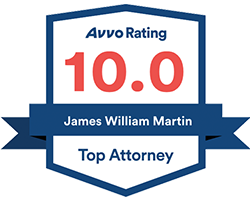- Free Initial Consultation: (727) 821-0904 Tap Here to Call
Legal Ways To Preserve Wealth In Florida
Legal Ways To Preserve Wealth In Florida
The word is out on Tampa Bay: sunny skies, white sandy beaches, water all around, and the world’s best airport; the arts, culture and music; state-wide cell phone coverage; high speed cable modem Internet access. What a great place for the High Tech to live!
What is not as well known is that Florida is a great place to preserve wealth. Now I’m not saying that the Great Depression is around the corner, but anyone who’s already made it big in the New Economy is well-advised to sock away a little money in a nest egg in Florida. All you need is Florida residency, and here is what you get to keep:
1 Florida Homestead: The home where you live, your wife lives, or your children live is your homestead. No one can take it from you no matter how much it’s worth. Even if you paid a million dollars for it. Or more.
Homestead is limited not by dollar amount but by quantity of land. If located within a city, the homestead can be up to half an acre — enough land for a really big house. If located outside a city, it can be up to 160 acres — enough land for a really, really big house and some cows, pigs and horses.
Caveat: If you mortgage your house, the lender can take your home through foreclosure if you default. If you fail to pay contractors who work on your home, they can foreclose, too. And the government can take your home if you fail to pay taxes, of course. But no other creditors can reach your Florida homestead.
Source: Florida Constitution Article X Section 4.2
2 Florida Wages. No one can take your salary and wages in Florida. Without limit. As long as you are head of a family who provides more than half the support for a child or other dependent. And the wages remain exempt from creditors while in your bank account for up to 6 months. Hint: You can live in Florida and telecommute anywhere in the world, and your wages are safe because you are a Florida resident. This includes salary, bonus, commission, the works.
Source: Florida Statutes Section 222.11. 3
3 Cash Value of Life Insurance and Annuities. No one can take the cash value of life insurance or annuities issued on your life, no matter how valuable. You can have a million dollar cash value life insurance policy or annuity, and a creditor cannot reach it. You must be both the owner of the policy or annuity, and it must be on your life. And, of course, you must be a citizen or resident of Florida. Hint: You don’t need to wait for cash value to build up through annual premiums. Your life insurance agent would be happy to sell you a policy or annuity that has just one up-front cash premium payment. It’s like putting money in the bank, except that it’s not government-insured and might not pay as much interest, but it’s your nest egg and it’s safe from creditors in case of the Big Crash.
Source: Florida Statutes Section 222.14.4
Those are the top three exemptions that Florida residents enjoy, and they are the kind needed to protect a nest egg from the unexpected. Other states are not so generous to their residents when it comes to keeping assets away from creditors. So, preserve your wealth and move to Florida where you can keep your nest egg in your big brick house and away from the Big Bad Wolf.
Notes: This article is not intended to be legal advice on a specific factual situation. Before relying on this article, obtain legal advice to update and apply the law to your specific facts.
A variation of this article was published May 2001 in the newsletter of the Florida Bar Entertainment, Arts & Sports Law Section.
1 For more information, go to www.jamesmartinpa.com or email him at jim@jamesmartinpa.com.
2 Florida Constitution Article X Section 4. Homestead; exemptions._(a) There shall be exempt from forced sale under process of any court, and no judgment, decree or execution shall be a lien thereon, except for the payment of taxes and assessments thereon, obligations contracted for the purchase, improvement or repair thereof, or obligations contracted for house, field or other labor performed on the realty, the following property owned by a natural person:
(1) a homestead, if located outside a municipality, to the extent of one hundred sixty acres of contiguous land and improvements thereon, which shall not be reduced without the owner’s consent by reason of subsequent inclusion in a municipality; or if located within a municipality, to the extent of one-half acre of contiguous land, upon which the exemption shall be limited to the residence of the owner or the owner’s family;
(2) personal property to the value of one thousand dollars.
(b) These exemptions shall inure to the surviving spouse or heirs of the owner.
(c) The homestead shall not be subject to devise if the owner is survived by spouse or minor child, except the homestead may be devised to the owner’s spouse if there be no minor child. The owner of homestead real estate, joined by the spouse if married, may alienate the homestead by mortgage, sale or gift and, if married, may by deed transfer the title to an estate by the entirety with the spouse. If the owner or spouse is incompetent, the method of alienation or encumbrance shall be as provided by law.
3 Florida Statutes Section 222.11 Exemption of wages from garnishment._(1) As used in this section, the term:
(a) “Earnings” includes compensation paid or payable, in money of a sum certain, for personal services or labor whether denominated as wages, salary, commission, or bonus.
(b) “Disposable earnings” means that part of the earnings of any head of family remaining after the deduction from those earnings of any amounts required by law to be withheld.
(c) “Head of family” includes any natural person who is providing more than one-half of the support for a child or other dependent.
(2)(a) All of the disposable earnings of a head of family whose disposable earnings are less than or equal to $500 a week are exempt from attachment or garnishment.
(b) Disposable earnings of a head of a family, which are greater than $500 a week, may not be attached or garnished unless such person has agreed otherwise in writing. In no event shall the amount attached or garnished exceed the amount allowed under the Consumer Credit Protection Act, 15 U.S.C. s. 1673.
(c) Disposable earnings of a person other than a head of family may not be attached or garnished in excess of the amount allowed under the Consumer Credit Protection Act, 15 U.S.C. s. 1673.
(3) Earnings that are exempt under subsection (2) and are credited or deposited in any financial institution are exempt from attachment or garnishment for 6 months after the earnings are received by the financial institution if the funds can be traced and properly identified as earnings. Commingling of earnings with other funds does not by itself defeat the ability of a head of family to trace earnings.
4 Florida Statutes Section 222.14. “Exemption of cash surrender value of life insurance policies and annuity contracts from legal process. The cash surrender values of life insurance policies issued upon the lives of citizens or residents of the state and the proceeds of annuity contracts issued to citizens or residents of the state, upon whatever form, shall not in any case be liable to attachment, garnishment or legal process in favor of any creditor of the person whose life is so insured or of any creditor of the person who is the beneficiary of such annuity contract, unless the insurance policy or annuity contract was effected for the benefit of such creditor.”
Florida residents benefit from statutory exemptions from creditor’s claims.





